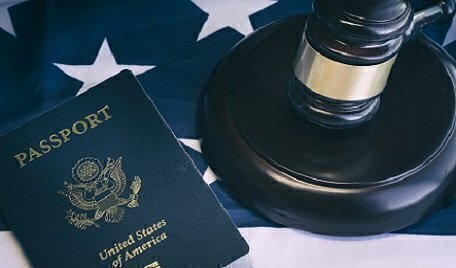Quoting the Supreme Court’s landmark Marbury v. Madison decision, a three-judge Ninth Circuit has upheld a nationwide injunction blocking the Trump administration’s efforts to end the Deferred Action for Childhood Arrivals (or DACA) program.
 In a 99-page opinion, the panel said it had the power to review the case despite claims from the United States Attorney General’s office and the Department of Homeland Security that the DACA rescission order was beyond judicial review. The Acting Secretary of Homeland Security had claimed the order wasn’t reviewable under the Administrative Procedure Act (APA) or the Immigration and Nationality Act (INA).
In a 99-page opinion, the panel said it had the power to review the case despite claims from the United States Attorney General’s office and the Department of Homeland Security that the DACA rescission order was beyond judicial review. The Acting Secretary of Homeland Security had claimed the order wasn’t reviewable under the Administrative Procedure Act (APA) or the Immigration and Nationality Act (INA).
“The government may not simultaneously both assert that its actions are legally compelled, based on its interpretation of the law, and avoid review of that assertion by the judicial branch, whose 'province and duty' it is 'to say what the law is,'" said Judge Kim Wardlaw.
In Marbury v. Madison, Chief Justice John Marshall wrote in 1803 that, “It is emphatically the province and duty of the judicial department to say what the law is,” in the decision that set a standard for judicial review and the ability of courts to finds law unconstitutional.
On October 17, the Justice Department asked the Ninth Circuit to expedite its ruling in the case. And on Monday, it appealed directly to the Supreme Court to consolidate three different DACA cases and accept them for arguments during the Court’s current term.
In the Ninth Circuit ruling, the majority also didn’t agree with the Justice Department’s claims that DACA was unlawful when instituted by the Obama administration in 2012. Judge Wardlaw concluded “that, because the Acting Secretary was incorrect in her belief that DACA was illegal and had to be rescinded, plaintiffs are likely to succeed in demonstrating that the rescission must be set aside under the APA as arbitrary and capricious.”
One of three judges, John B. Jones, didn’t agree that the arbitrary and capricious claim would succeed, but all three said Equal Protection claims justified the national injunction. “The extraordinary practical impact of allowing DACA’s rescission to take effect before a final adjudication of its legality far outweighs the minimal practical impact of keeping the program in place a bit longer,” Owens said.
It is widely expected that the Supreme Court will accept a DACA case in some form, since the dispute involves a significant executive branch policy ruling on the constitutionality of government program.






